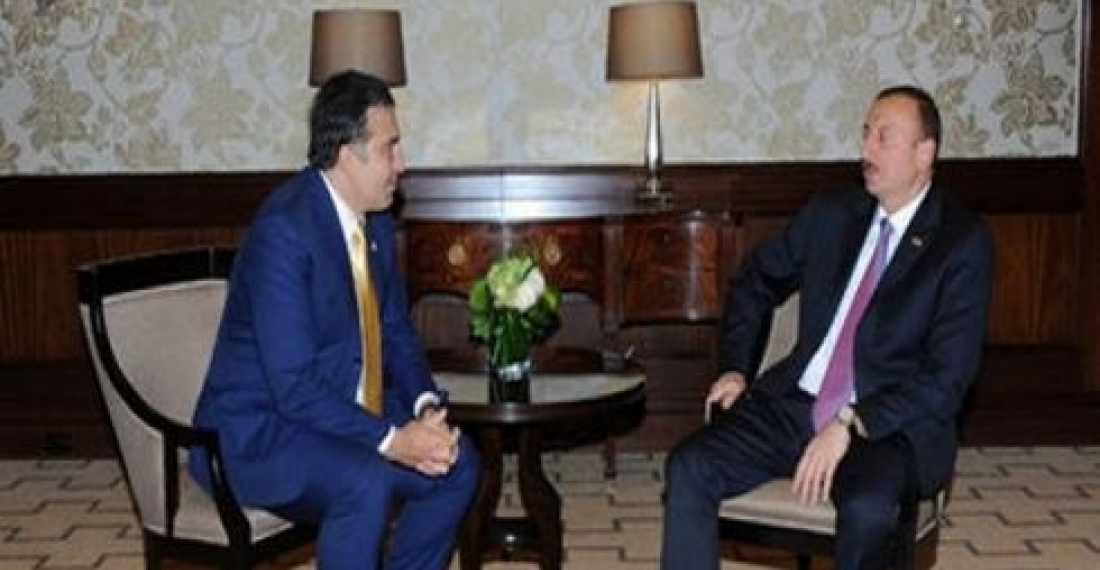The president of Azerbaijan Ilham Aliev and the president of Georgia Mikhail Saakashvili have met in Chicago in an effort to resolve a territorial dispute which has created tensions between the two countries.
The dispute is related to the Davit Gareji Monastery Complex and began after Azerbaijani border guards on May 6 repositioned themselves in a disputed border section running through the monastery complex, no longer allowing visitors from Georgia to access some of the sites of the complex.
The monastery complex, construction of which started in 6th century, is located in Gareji semi-desert about 70 kilometers southeast of Tbilisi and is one of Georgia's important cultural and religious heritage sites and home of Georgian Orthodox monks. However since Soviet times the border between the two countries ran through the complex. The issue of demarcation of the border has been under consideration between the two countries for several years and it is not clear what has provoked the latest developments.
Azerbaijan is an increasingly important investor in the Georgian economy and Georgia hosts part of the Baku-Tbilisi-Ceyhan pipeline which transports Azerbaijani oil to European markets.
Unconfirmed repoerts say that the Presidents have agreeed to set up a special group to deal with the matter.
source: commonspace.eu
photo: President Saakashvili and President Aliev at their meeting in Chicago on 19 May 2012 (picture courtesy of the press Service of the president of Azerbaijan).







